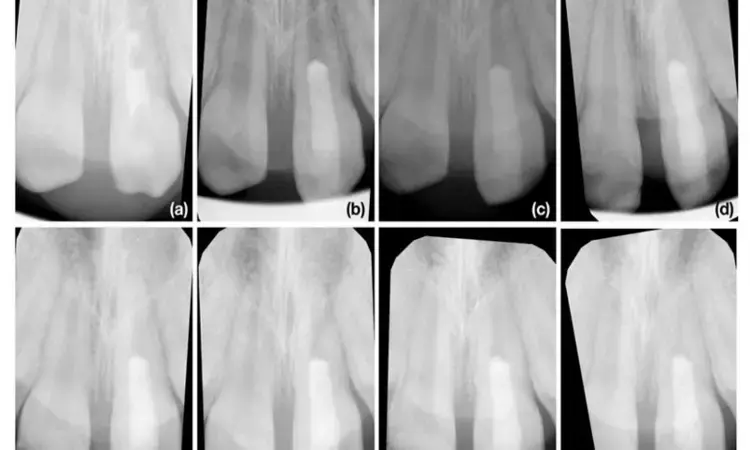- Home
- Medical news & Guidelines
- Anesthesiology
- Cardiology and CTVS
- Critical Care
- Dentistry
- Dermatology
- Diabetes and Endocrinology
- ENT
- Gastroenterology
- Medicine
- Nephrology
- Neurology
- Obstretics-Gynaecology
- Oncology
- Ophthalmology
- Orthopaedics
- Pediatrics-Neonatology
- Psychiatry
- Pulmonology
- Radiology
- Surgery
- Urology
- Laboratory Medicine
- Diet
- Nursing
- Paramedical
- Physiotherapy
- Health news
- Fact Check
- Bone Health Fact Check
- Brain Health Fact Check
- Cancer Related Fact Check
- Child Care Fact Check
- Dental and oral health fact check
- Diabetes and metabolic health fact check
- Diet and Nutrition Fact Check
- Eye and ENT Care Fact Check
- Fitness fact check
- Gut health fact check
- Heart health fact check
- Kidney health fact check
- Medical education fact check
- Men's health fact check
- Respiratory fact check
- Skin and hair care fact check
- Vaccine and Immunization fact check
- Women's health fact check
- AYUSH
- State News
- Andaman and Nicobar Islands
- Andhra Pradesh
- Arunachal Pradesh
- Assam
- Bihar
- Chandigarh
- Chattisgarh
- Dadra and Nagar Haveli
- Daman and Diu
- Delhi
- Goa
- Gujarat
- Haryana
- Himachal Pradesh
- Jammu & Kashmir
- Jharkhand
- Karnataka
- Kerala
- Ladakh
- Lakshadweep
- Madhya Pradesh
- Maharashtra
- Manipur
- Meghalaya
- Mizoram
- Nagaland
- Odisha
- Puducherry
- Punjab
- Rajasthan
- Sikkim
- Tamil Nadu
- Telangana
- Tripura
- Uttar Pradesh
- Uttrakhand
- West Bengal
- Medical Education
- Industry
Endodontically treated traumatized immature teeth can remain functional for long time

Researchers have found in a new study that Endodontically treated traumatized immature teeth can remain functional for long time.
The findings of the study have been published in the Journal of Endodontics.
In a growing child, preservation of traumatized immature permanent upper incisors is challenging. This study aimed to evaluate the long-term outcome of endodontically treated traumatized immature upper incisors and associated variables.
A total of 183 traumatized immature upper incisors treated with pulpotomy, apexification, or regenerative endodontic procedure (REP), with follow-up between 4 and 15 years, were assessed for presence of pulpal responses or periodontal/bone responses using standardized clinical and radiologic criteria. Logistic regression, including stage of root development, type and complexity of traumatic event, type of endodontic intervention, and history of orthodontic management, were used to estimate impact on tooth survival and occurrence of tissue responses. Study approved by Ethics Committee Research UZ/KU Leuven (S60597).
Results
After a median follow-up of 7.3 years (interquartile range, 6.1–9.2), 159 teeth (86.9%) were still functional. From these teeth, 58 (36.5%) developed tissue responses. This was significantly associated with stage of root development at moment of trauma (root length <¾) and type of endodontic intervention (REP presenting worst outcome). Tooth loss (24 teeth, 13.1%) occurred after a mean time span of 3.2 years (±1.5) and was significantly associated with type and complexity of the traumatic event and type of endodontic intervention, with apexification showing better results than REP (odds ratio, 0.30; 95% confidence interval, 0.11–0.79).
A large number of endodontically treated traumatized immature teeth could be kept functional. Very immature teeth, teeth with periodontal tissue damage, and teeth treated with REP were at highest risk for an unfavorable outcome.
Reference:
Long-term Outcome of Endodontically Treated Traumatized Immature Upper Incisors
Gertrude Van Gorp, PhD, Dominique Declerck, PhD. Published:June 27, 2023DOI: https://doi.org/10.1016/j.joen.2023.06.013
Keywords:
Long-term, Outcome, Endodontically, Treated, Traumatized, Immature, Upper, Incisors, Gertrude Van Gorp, Dominique Declerck, Journal of endodontics
Dr. Shravani Dali has completed her BDS from Pravara institute of medical sciences, loni. Following which she extensively worked in the healthcare sector for 2+ years. She has been actively involved in writing blogs in field of health and wellness. Currently she is pursuing her Masters of public health-health administration from Tata institute of social sciences. She can be contacted at editorial@medicaldialogues.in.
Dr Kamal Kant Kohli-MBBS, DTCD- a chest specialist with more than 30 years of practice and a flair for writing clinical articles, Dr Kamal Kant Kohli joined Medical Dialogues as a Chief Editor of Medical News. Besides writing articles, as an editor, he proofreads and verifies all the medical content published on Medical Dialogues including those coming from journals, studies,medical conferences,guidelines etc. Email: drkohli@medicaldialogues.in. Contact no. 011-43720751


